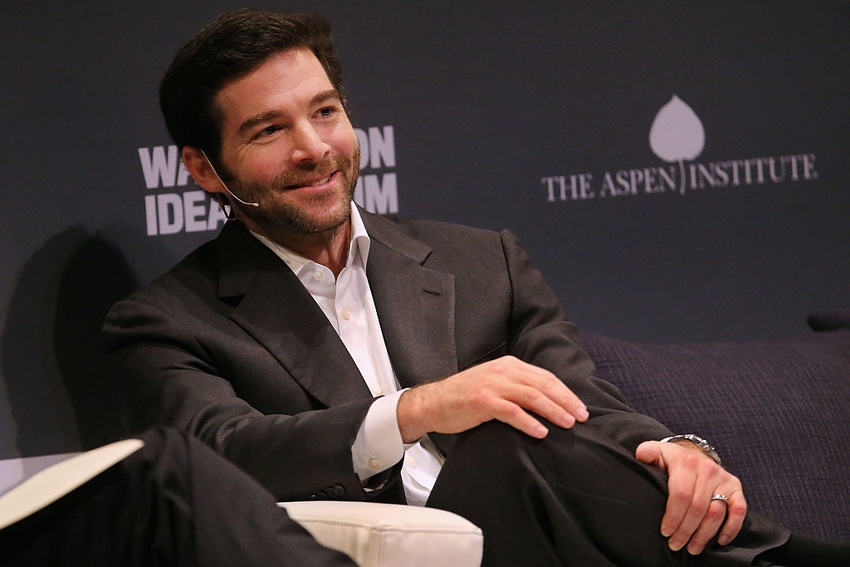Big Internet and software deals are rare. That may change in 2016.
June 17, 2016

By WeathersfieldTM
(Bloomberg) — Big Internet and software deals are rare. That may change in 2016.
Microsoft Corp.’s $26.2 billion deal for LinkedIn Corp. could trigger other large-cap M&A for business software and Internet companies. NetSuite Inc. and Ultimate Software Group Inc. could both be targeted by companies including SAP SE, IBM Corp. and Oracle Corp. that want to strengthen their cloud-computing assets, according to Mandeep Singh, an analyst at Bloomberg Intelligence. Twitter Inc. also has at least a 15 percent chance of seeking “strategic” M&A in the next 12 months, Goldman Sachs Group Inc. analysts wrote in a note to clients.
The Microsoft-LinkedIn deal “could potentially create a greater sense of urgency than there was before for acquisitions,” said James Cakmak, an analyst at Monness Crespi Hardt & Co. “If the perception is that there is an appetite out there and there’s a willingness to make moves, then that could help create urgency and help pick up the pace.”
Internet or software deals of more than $8 billion have been once-a-year occurrences in recent years. Facebook Inc. agreed to buy WhatsApp Inc. in 2014 for $19 billion. Last year, Dell Inc. agreed to acquire EMC Corp. for $67 billion, the largest tech deal of all time. In a smaller transaction, Symantec Corp. on Sunday unveiled plans to acquire Blue Coat Systems Inc. for about $4.65 billion.
A slew of enterprise software deals in recent months, both by companies and private equity firms, may push boards and executives to approve transactions to keep pace with competitors and buy assets while they’re still available, said Pat Walravens, an analyst at JMP Securities in San Francisco.
Billions in Cash
The big tech companies have the cash to make these purchases, too. Between the likes of Apple Inc., Alphabet Inc., Microsoft, Facebook and Cisco Systems Inc., they have hundreds of billions of dollars in cash on top of the ability to issue debt and equity that could be used toward deal-making, said Ivan Feinseth, chief investment officer at Tigress Financial Partners.
“Almost everybody’s in play and nobody’s out of reach because of the amount of capital that’s on balance sheets,” he said. “I’m surprised there’s not been more deals.”
With premiums, any deals for NetSuite and Ultimate Software could approach or top $8 billion, Singh said. The median multiple for acquisitions for pure-play cloud companies is about seven times to eight times enterprise value over sales. Salesforce.com Inc., though, agreed to pay more than 10 times sales for Demandware Inc. in a deal announced earlier this month.
Founded in 1998, NetSuite, with a market capitalization of $6.34 billion, sells cloud business software including customer relationship management and e-commerce tools. In May, the company unveiled software that unifies various accounting functions — for instance, billing, revenue recognition, orders and subscriptions — into one system. NetSuite has more than 30,000 customers, the bulk of which are small and mid-size companies.
As of March of this year, Oracle Corp. co-founder Larry Ellison and his family own about 45.4 percent of NetSuite’s common stock, according to a company filing. Ellison has “control over approval of significant corporate transactions,’’ according to the filing. NetSuite also warns in the document that Ellison’s stake could “discourage potential acquirers.’’
Ultimate Software sells Internet-based software that help businesses manage human resources and payroll. The company has almost 4 percent of the human capital management software market, coming in as the sixth-largest provider of these tools, according to Singh. Revenue has grown more than 20 percent annually since 2012.
Twitter Gets Cheaper
Twitter, the social-media service that lets people communicate in 140-character messages, has struggled in recent years with slowing user growth, fueling concerns that it won’t be able to expand past a core constituency of journalists, celebrities and politicians to reach a wider general audience. New participants complain that the product is hard to understand and use. Chief Executive Jack Dorsey has been trying to widen Twitter’s appeal by focusing on making it more intuitive.
These initiatives have yet to pay real dividends, and investors and analysts have questioned Twitter’s ability to attract advertising dollars as a result. Some of those fears were justified when the company reported first-quarter revenue that missed estimates. Dorsey, whose attention is split as the head of payments company Square Inc., has also been dealing with executive departures and laid off about 8 percent of the workforce to rein in bloated product and engineering groups.
Twitter’s troubles have weighed on the stock, which has lost more than half its value over the last year. The sharp drop in price has incited speculation that Twitter is now cheap enough as a takeover target for larger companies interested in adding a social platform. Twitter has a market capitalization of $10.2 billion. The Microsoft-LinkedIn deal can be seen as a proxy for the value placed on technology assets that consume people’s time and that provide the data and analytics around usage, Cakmak said.
“Twitter comes to mind pretty much at the top of the list,” he said. Google makes “the most academic sense” as an acquirer for the platform, Cakmak said, adding that media companies are the most unlikely buyers.
Read more about:
MSPsYou May Also Like
